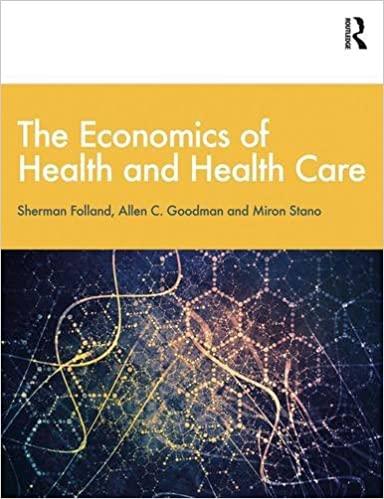Consider two households. They have the same incomes and face the same prices. Household H tends to
Question:
Consider two households. They have the same incomes and face the same prices.
Household H tends to be healthy and household U tends to be unhealthy. Suppose that two insurance plans are available:
A—$2,500 deductible and a 5 percent coinsurance rate after meeting the deductible.
B—$250 deductible and a 20 percent coinsurance rate after meeting the deductible.
(a) Using a budget constraint and indifference curves on the diagram above, model the two insurance plans.
(b) Assume that a voluntary HSA is made available upon the purchase of a high-deductible policy. Assume that if the money is not used it is lost. Which of the households is likely to participate? Use the diagram above to explain why.
(c) Consider part (b) above, but assume now that the unused portion in the HSA can be distributed to the individual at the end of a designated period or at retirement. Would your answer to part (b) change? If so, how? If not, why not?
Step by Step Answer:

The Economics Of Health And Health Care
ISBN: 9781138208049
8th Edition
Authors: Sherman Folland, Allen C. Goodman, Miron Stano





